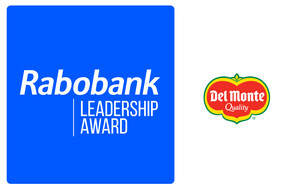
Rabobank Report: Structural Changes In Global Urea Market
Capacity Expansions Drive Shift to Buyer's Market
NEW YORK, March 22, 2013 /PRNewswire/ -- Rabobank has published a new research report on the global urea industry, forecasting structural change in the global urea market due to capacity expansion by key importers and low-cost players in the Middle East and Africa regions.
"Bursting the Urea Bubble," the report authored by Rabobank's global Food & Agribusiness Research and Advisory, predicts that global urea market is set to enter an era of oversupply post 2015, according to Rabobank. Unprecedented acceleration in urea capacity expansion by key importers (the U.S., Brazil and India) and low-cost producers in the Middle East and Africa (MEA) will drive structural changes. This capacity expansion is expected to improve the self-sufficiency of the top three importers and ensure that supply growth significantly outpaces demand growth, shifting the market into a buyers' market towards 2020. The competition among traditional exporters in the MEA, China and the former Soviet Union (FSU) will intensify, resulting in price pressure and capacity rationalisation in high-cost regions.
"Attractive returns in urea production have resulted in a spurt in capacity expansion projects since 2007," Rakhi Sehrawat, Rabobank analyst, commented. "The expansion is driven mainly by the exploitation of shale gas in the United States, new gas fields in Brazil, political incentives in India, and low-cost natural gas in the MEA. Over 65 new projects have been announced that will expand global urea capacity by 30 percent between now and 2020. This rush of activity on the supply side will have a strong influence on the urea demand/supply picture in the coming five to ten years."
The urea production boom will impact players across its value chain, especially high-cost producers and traders. As the import reliance of the main urea destination markets declines and low-cost export-oriented capacity grows, competition among the traditional players/exporters will intensify, resulting in price pressure and capacity rationalisation in high-cost regions. In this market, strategic routes of the urea value chain partners (i.e. producers and traders) would need to change to adapt to this new reality in the urea industry.
For high-cost producers it means they would need to strengthen their market position through cross industry partnerships and downstream integration closer to farmers. The winners will be those who can achieve low costs of production and/or are placed close to a demand market, enabling them to quickly respond to demand dynamics by altering production cycles. Market intelligence and access to growers will be key success factors in this case.
Lower volumes destined for key urea importers and a diminished role of high-cost exporters in the oversupplied market will have implications for traders. They will need to make the important decision of whether to expand their overall role in the supply chain through upstream or downstream integration or by maintaining focus on trading fertilisers but increasing sourcing of urea from the emerging competitive capacities.
The Rabobank report on the global urea industry is available to media upon request.
Rabobank Group is a global financial services leader providing wholesale and retail banking, leasing, real estate services, and renewable energy project financing. Founded over a century ago, Rabobank is one of the largest banks in the world, with nearly $1 trillion in assets and operations in more than 40 countries. In North America, Rabobank is a premier bank to the food, beverage and agribusiness industry. Rabobank's Food & Agribusiness Research and Advisory team is comprised of more than 80 analysts around the world who provide expert analysis, insight and counsel to Rabobank clients about trends, issues and developments in all sectors of agriculture. www.rabobank.com/f&a
For more information about this publication, please contact the author Rakhi Sehrawat:
[email protected] or +31 30 712 3910 (The Netherlands)
For a social media-ready version of this press release:
http://rabobank-food-agribusiness-research.pressdoc.com
Follow us on Twitter:
@rabofoodagri
SOURCE Rabobank







Share this article